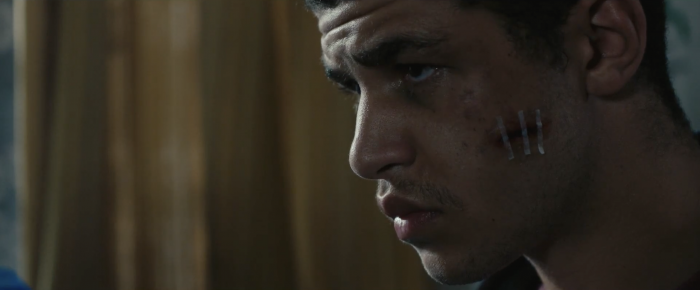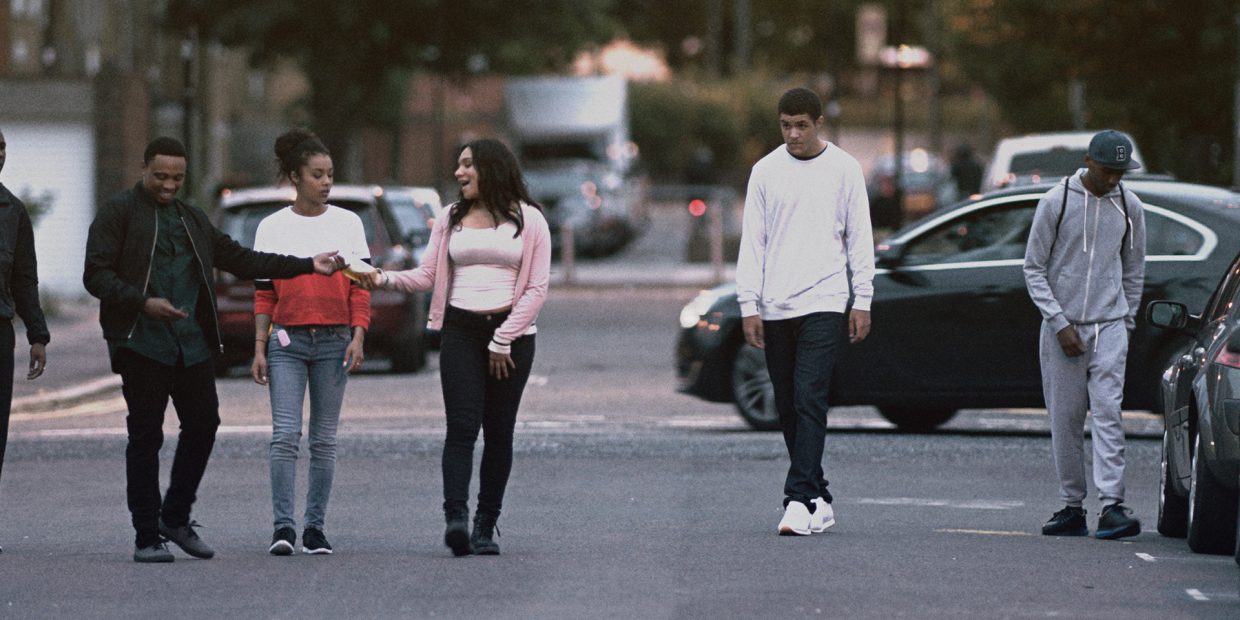Director: Jamie Jones
Societal turmoil blends inseparably with personal struggle in Jamie Jones’ ominous teen drama, set against the tense backdrop of a divided and gentrified East London about to hit boiling point.
Taking a meandering narrative path that reflects the moral uncertainty and wandering existence of its young protagonist, Obey offers an astute inner city cross-section of classes, cultures, races and generations, while channelling the ongoing tension and miscommunication between these groups. It’s a stark and intimate work in which the dilemmas and conflicts of daily life are a continuous reflection of the wider political, cultural and economic factors that can keep a person and their community trapped in the same destructive cycles.

Jones seems less interested in placing blame or offering solutions than in telling a particular side to the story that often remains neglected or misrepresented. The nineteen-year-old Leon leads a fairly rootless life that orbits around very little beyond his unruly circle of friends. The film’s opening scene sees one of Leon’s fellow youths spontaneously steal a purse from a car, seemingly confirming the negative stereotypes around his demographic. But as the rest of the feature will demonstrate, the world that these kids are growing up in does little to encourage a more productive way to spend the day than petty crime and minor substance abuse.
Leon’s domestic situation is an unstable mess, with the young man regularly coming home to the sight of his alcoholic mother Chelsea passed out. Things only get worse once she starts bringing her abusive and erratic boyfriend Chris back to their place. In a moment that encapsulates the grim absurdity of a teenager being raised in this miserable and dangerous environment, a drunk Chelsea dissuades Chris from offering Leon some coke even as Chris is snorting some off their kitchen table.
In vividly illustrating the personal and cultural context of its lead’s journey, Obey encourages sympathy for London’s rioters and delinquents without ever condoning their actions. Thanks in part to a quietly agonised performance from Marcus Rutherford, Jones captures the immediate feelings of lust, anger, excitement and boredom that motivate Leon and his social clique’s often questionable activities while also hinting at the voice at the back of his mind asking if he should really be doing this. That cautionary doubt eventually dissipates with brutal results in the film’s heated climax – a nightmarish clash with riot police in which all of the fear and frustration gradually building up in Leon violently comes to a head.

The film’s most consistently compelling blend of the personal and the societal, however, comes via the subplot of Leon’s friendship with Twiggy, a middle-class party-lover who’s squatting in some local property. Though Leon is drawn to her free-spirited persona, Twiggy’s booze-heavy sojourn slumming it in East London holds sombre implications that resonate beyond every affluent youngster who tries to look fashionably poor while living consequence-free.
Though Obey is generally a film that compels more for the effectiveness of its execution than the originality of its insights, there’s a freshness to this supporting character, whose breezy presence provides a potent counterpoint to the rest of the drama. Both Twiggy and Leon do little with their day except hang around and get wasted. The difference is that while the former can always move onto something new whenever she feels the whim, the latter is stuck where he is and faced with a future that isn’t getting any brighter.








